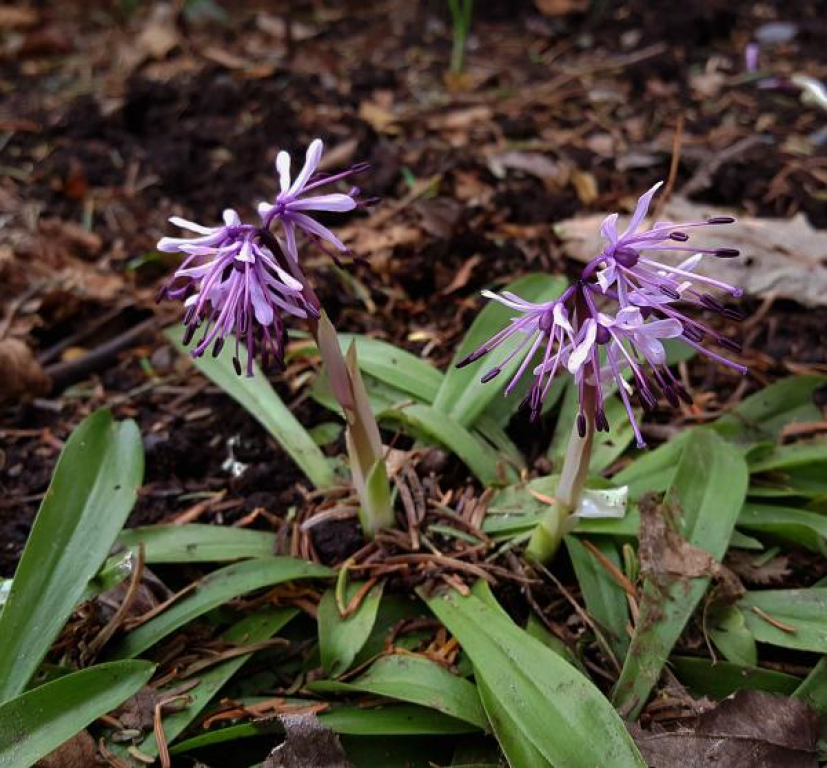Description and General Information:
This woodlander is native to shady, damp woodlands of Japan, Korea and Taiwan. Plants produce a basal rosette of smooth, evergreen, strap-like leaves that often take on red tints in winter. In early sping, it produces a leafless cluster of nodding, 2-3 cm wide lavender-pink lily-like bells atop 15-30 cm tall stems. Stems may elongate to 45 cm as seeds develop. After flowering, plants produce a new rosette of leaves.
Blooming Season:
Heloniopsis may bloom as early as March in southern areas or as late as May at the northern end of its hardiness range.
Cultivation:
This species prefers part-shade and soil that is acidic, moist, highly-organic but well-drained. Sandy-loams are ideal. It is rated hardy to zone 6.
Propagation:
Division, seed or leaf-tip propagules

